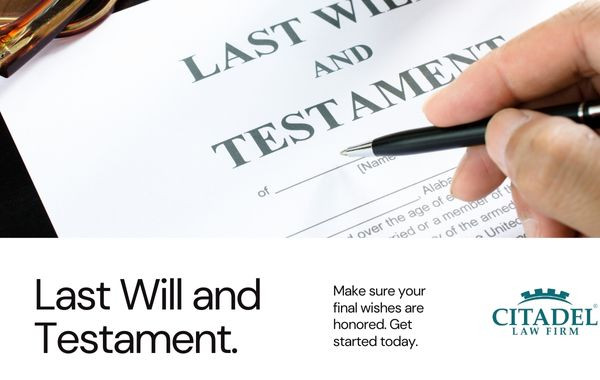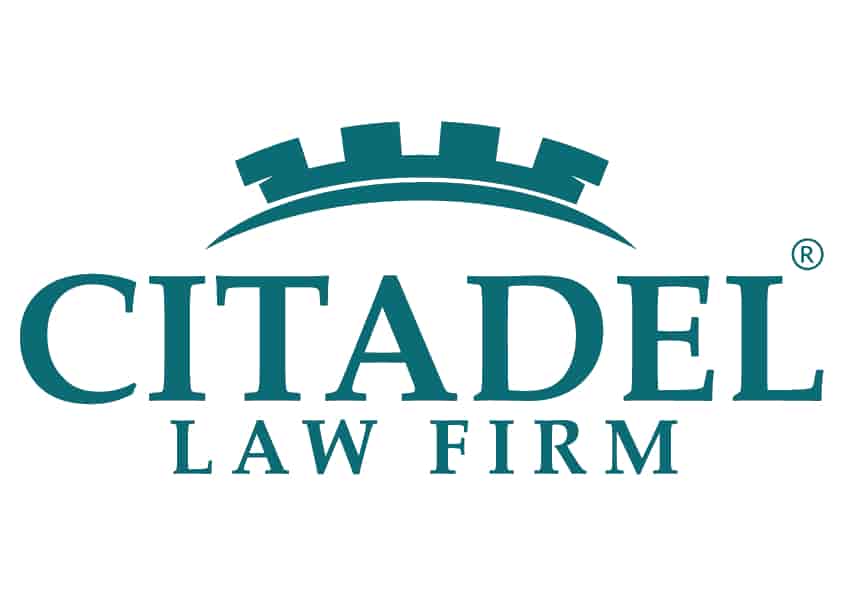Estate Planning for Young Adults: Safeguard Your Future and the Future of your Family in AZ
An experienced estate planning attorney will guide you through the estate plan process as your life evolves.
Why should you, as a young adult in Arizona, consider estate planning?
It’s simple: estate planning is an act of foresight and responsibility that protects your personal interests and paves the way for your assets to be handled according to your wishes, especially during life’s unexpected turns.
This article sheds light on estate planning for young adults in Arizona, underlining the steps involved in creating a will, appointing a health care directive, and setting up trusts. Stay ahead of the curve and ensure that your estate plan reflects your current lifestyle and future goals.
- Estate planning is essential for young adults in Arizona, allowing them to protect their assets, express personal wishes, and provide clear directions for managing their affairs after they’re gone or if they’re unable to do so themselves.
- A comprehensive estate plan includes critical documents such as a will, a durable power of attorney, and a health care directive, which collectively secure the management of assets and health care preferences, as well as plans for minor children through guardianship and trusts.
- Working with an experienced Arizona estate planning attorney is vital, as they guide individuals through the state’s specific legal intricacies, helping them to establish a dynamic and evolving estate plan that is compliant with local laws and tailored to personal needs.
- Talk to a trust and wills lawyer today about your Arizona estate planning.
Why Estate Planning Matters for Young Adults in Arizona
Consider the fate of your possessions, tangible and intangible alike—ranging from physical property to your online presence—if life takes an unforeseen turn. Estate planning provides vital direction for those you leave behind during difficult moments.
In Arizona, this crucial undertaking is often disregarded by young adults despite its significance in safeguarding one’s estate, upholding individual desires, and offering comfort through certainty. The essence of estate planning lies in making key decisions about managing your affairs and assets when you might no longer be capable.
For young adults residing in Arizona—a state where it’s not uncommon for individuals to own real estate early on, raise children or accumulate retirement savings—the implications of establishing a comprehensive plan are profound.
It forms the cornerstone that ensures asset protection as well as their seamless transfer posthumously to loved ones while also protecting against the potential intricacies involved with administering estates within the region.
The Role of an Arizona Estate Planning Attorney
Navigating Arizona’s intricate legal landscape when it comes to estate planning can be akin to exploring its grand canyons—it’s best undertaken with a knowledgeable guide. An estate planning attorney, seasoned in guiding young adults through the state’s specific laws on estates, provides invaluable assistance.
They clarify complicated legal processes and ensure that clients fully grasp how these rules apply within Arizona, skillfully preparing essential documents that protect both individual interests and family assets.
When creating an estate plan for young adult Arizonans or those who have minor children, every detail counts—from designating child guardians to overseeing digital properties.
Experienced estate planning attorneys excel at customizing plans according to each client’s particular situation and aspirations. Partnering with such professionals gives you the assurance needed as you chart your course through the complexities of planning an estate. Their expertise ensures your wishes are precisely reflected in all arrangements made for handling your legacy.
Key Components of an Estate Plan for Young Adults

The foundation of an estate plan is composed of three essential legal documents that direct the future handling of your estate: a will, a durable power of attorney, and a health care directive. These tools are critical in guaranteeing that your assets are distributed according to your desires during unforeseen events and that decisions about your medical care reflect your preferences.
Proper estate planning goes beyond tangible property to include provisions for digital assets, as attorneys adeptly integrate aspects like online accounts into the management plan.
Why must these components be integrated? Collectively, they establish solid groundwork for a comprehensive estate plan which ensures protection over how you want things handled after you’re gone or unable to articulate them yourself. Ranging from selecting individuals who can make healthcare decisions on your behalf (healthcare proxies) to granting others access rights required under HIPAA laws. These instruments give clear instructions concerning the governance of both material possessions and personal matters, no matter what challenges life presents.
Last Will and Testament
A Last Will and Testament stands as the foundation of any estate plan, acting as your substitute voice to convey your final wishes after you pass. This important document authorizes you to specify how your assets and property should be distributed, designate guardians for underage children if needed, and avert possible disagreements among family members.
For younger individuals residing in Arizona, having a will is especially vital because passing away without one—known as dying intestate—results in state laws determining the fate of your estate, which may not reflect what you would have wanted.
This document provides an avenue for young adults to articulate comprehensive provisions regarding their children’s future care—including their education choices, healthcare decisions, and religious practices—to ensure that they’re raised according to specific parental values.
By pinpointing preferred guardians while also preparing backup plans within the will can help minimize potential family disputes and maintain continuity in upbringing aligned with personal principles.
By constructing a detailed will within an estate plan framework, this ensures solid protection for both your progeny’s welfare following outlined desires alongside safeguarding against unnecessary legal battles over assets amongst loved ones when administering one’s estate.
Durable Power of Attorney

Imagine a situation where you are unexpectedly incapacitated and can no longer manage your financial decisions. In such cases, having a durable power of attorney is extremely valuable. This legal instrument allows you to designate someone trustworthy to oversee your financial matters, which helps maintain stability when you cannot do so yourself.
It plays an essential role in the estate plan for young adults by safeguarding their assets and fiscal legacy.
With someone holding a durable power of attorney on your behalf, they gain the authority necessary to conduct various transactions ranging from bill payments to overseeing investments, ensuring that all monetary obligations are met effectively.
Not only does this protect your economic interests, but it also eases the burden on relatives who might otherwise face complex court procedures in order to obtain permission to handle these affairs for you.
Health Care Directive

Estate planning is not just about managing your assets. It’s also about ensuring that the medical treatment you receive reflects your desires. A living will and health care directive, are critical documents for young adults to consider creating as they articulate their healthcare preferences in situations where they are unable to communicate. These include choices related to life-sustaining measures and how one wants their end-of-life care handled, preserving individual beliefs and independence.
Incorporated within this estate planning process is the selection of a trusted individual via a healthcare proxy who can make decisions regarding medical treatments on your behalf if necessary. Executing a HIPAA authorization grants designated persons access to pertinent medical records so they can make informed decisions respecting your wishes when the time comes.
Expert guidance from an estate planning attorney ensures that these documents meet all legal requirements while smoothly guiding young adults through complex health-related decision-making intricacies.
Having such plans in place aligns with one’s desired approach to receiving medical care and provides solace knowing that even during difficult times—when personal intervention isn’t possible—the life’s direction remains under control based on predefined guidelines outlined by themselves.
It also eases some strain off family members by predetermining how matters should be addressed according to stipulated instructions crafted well ahead of any eventuality.
Guardianship and Caring for Minor Children
Ensuring the safety and security of their children is paramount for any parent. Through estate planning, parents can ensure that care for their minor children aligns with their desires should tragedy strike.
Establishing a will to specify a guardian entrusts someone you have chosen with the upbringing of your children if you become incapacitated. It’s an act rooted in profound love and foresight, aimed at keeping siblings together and out of foster care. Proper estate planning addresses minor children's guardianship.
The appointed guardian holds not just the responsibility for catering to your children’s daily needs, but also oversees any property they may possess, including inheritances or funds from government benefits. This process reinforces that the principles important to you remain influential throughout your children’s lives even when you are no longer physically present.
The significance of this role cannot be overstated—it is a critical element in estate planning warranting thorough contemplation due to its impact on your legacy and most importantly, on your child’s future wellbeing.
Choosing the Right Legal Guardian
Choosing a guardian for your children is an exercise of both emotion and rationale. You must evaluate:
- Who reflects your parenting approach
- Whose core values align with yours
- Who can create a secure and loving environment for your kids
The chosen individual should be a legal adult, either within the family or among close friends, whom you deeply trust to bring up your offspring in the most optimal way.
Selecting an alternate guardian provides a safety net for child care continuity if the initial choice cannot fulfill their role.
An experienced estate planning attorney plays a vital role here by ensuring that guardianship intentions are legally recorded and meet Arizona’s statutory stipulations. This strategic preparation represents not just thoughtfulness but also expresses profound affection from you as it safeguards that your progeny will always be cared for appropriately.
Establishing Trusts for Children's Future Needs

Guardianship takes care of your children’s immediate needs, but setting up trusts is how you protect their financial future.
Trusts allow for the allocation of funds to specific goals like education, giving your descendants the means to fulfill their ambitions.
These trusts can be customized to suit the unique requirements of your family and provide you with control over both the usage and timing of asset distribution to your beneficiaries.
For those families raising special needs children, creating a special needs trust demonstrates remarkable planning. It uses life insurance proceeds to cover necessary expenses without compromising eligibility for government programs that offer benefits to these children.
Such foresightful planning guarantees that support is provided exactly as envisioned by avoiding unforeseen drawbacks. Constructing a trust displays unwavering dedication toward nurturing not just current aspects of life, but weaving into it a structure for lifelong security—all shaped with thoughtful consideration and deliberate financial strategy.
Life Insurance as a Safety Net for Young Adults

A life insurance policy embodies more than just an assurance of coverage. It represents a pledge to safeguard the financial well-being of those you care for after your departure. In Arizona, young adults should view this aspect of estate planning as an essential safety net.
It ensures that in case something happens to you sooner than anticipated, your loved ones will have financial support. Life insurance is fundamental in addressing potential debts, funeral costs, or maintaining the family’s lifestyle and is a pivotal element in the estate plan for younger individuals.
When crafting an estate plan and integrating life insurance into it, understanding the distinction between term and permanent policies is vital based on one’s individual long-term goals.
- Term life provides affordable protection during a designated timeframe.
- Permanent life guarantees continuous protection throughout one’s lifetime.
- Both offer a death benefit upon passing.
- Permanent life can help with educational funding and provide defense against inheritance taxes—enhancing multiple dimensions of security within your future planning.
Incorporate careful consideration regarding both your and your loved ones’ specific circumstances when determining which type of policy best aligns with your objectives in protective planning for their eventualities post-mortem.
Navigating Arizona's Unique Estate Planning Laws
In Arizona, the nuances of estate planning laws are as distinctive as its expansive desert. These specific state regulations govern the execution of wills, trusts, and probate proceedings.
Grasping these idiosyncratic rules is not merely advisable, but a fundamental part of crafting an operative estate plan aligned with Arizona’s legal requirements. Key steps in this process include:
- Gaining knowledge about Arizona’s particular statutes pertaining to wills, trusts, and probate
- Engaging with an experienced estate planning attorney well-versed in Arizonian law
- Exploring avenues for tax mitigation to decrease prospective liabilities within the state
- Regularly updating your estate plan so it accurately represents your current situation and desires
By considering these elements when forming your estate plan, you ensure that it both satisfies your objectives and adheres to local mandates.
Although complex, navigating through these legal intricacies can be made smoother under the advice of a seasoned estate planning attorney who specializes in tailoring plans according to Arizona’s legislative terrain. It involves matching one’s personal aims in regards to their property with official stipulations for optimal benefits for successors post-transitioning ownership or assets.
Community Property Laws
The laws concerning community property in Arizona significantly influence the way estate planning is conducted, particularly with regard to how assets obtained during marriage are handled. According to the law, any property acquired during marriage belongs equally to both spouses and must be evenly split upon divorce or death—an essential aspect of estate planning that cannot be overlooked.
When it comes to understanding Arizona’s community property rules, consider these critical points.
- Property amassed while married falls under community ownership and belongs jointly to each spouse.
- Upon a spouse’s departure through divorce or death, this shared property is distributed evenly between them.
- Any belongings one acquires before marriage or gains as gifts or inheritances can remain solely theirs unless they become mixed with marital properties.
Engaging an estate planning attorney is vital for ensuring your plan for handling your estate conforms appropriately so that all your possessions are allotted according to your personal directives after you pass away.
Those who wish not only safeguard their assets owned prior to marriage, but also ensure they’re insulated from future claims if a marriage dissolves should consider setting up a domestic asset protection trust, also know as pre-marital trust. This kind of strategy helps keep those individual items separate from joint martial properties thereby protecting one’s financial heritage.
Spousal Community Share
In Arizona, when it comes to estate planning laws, the concept of a spousal community share is fundamental as it safeguards the entitlements of a surviving spouse.
According to this rule, a spouse may receive up to half of both communal and individual assets despite being omitted from a will. This emphasizes why meticulous planning of an estate is essential in order to take into account how your choices might affect what your partner inherits.
Recognizing these nuances is crucial for creating an estate plan that accurately conveys your wishes and looks after your spouse according to those wishes. The principle governing spousal community shares serves as evidence for the close relationship between shared marital property and the importance for young adults especially, who often overlook such considerations at their age, proactively engaging in thorough estate planning activities.
The Benefits of a Comprehensive Estate Plan
Strategically crafting a comprehensive estate plan is vital in orchestrating the management of your legacy. The array of advantages it offers includes avoiding the lengthy and public probate process, preserving confidentiality over personal matters, and facilitating a smoother transition of assets to beneficiaries—thus simplifying what could otherwise be an intricate court-involved procedure.
Collaboration with an estate planning attorney can unlock these benefits among others, which you can explore during a cost-free consultation.
Creating an efficient tax strategy within your estate plan yields substantial gains.
- Utilizing tools such as irrevocable life insurance trusts can protect proceeds from life insurance against hefty estate taxes so that your heirs receive more of what you’ve intended.
- Life insurance also adds liquidity to one’s estate which assists heirs in covering necessary taxes and expenses without being forced to sell off assets quickly.
- A well-devised plan meticulously takes into account all beneficiaries ensuring equitable distribution and preemptively addressing any potential imbalances regarding inheritance.
Collaborating with an Estate Planning Attorney
Navigating through life’s milestones, such as getting married, welcoming a child into the world, or experiencing a divorce, demands that you reevaluate your estate plan to ensure it accurately mirrors your present situation and future aspirations.
An experienced estate planning attorney is vital in this process—serving not just momentarily, but as an enduring partner. They are skilled in integrating new aspects like life insurance policies or updating who will care for minors within the evolving framework of your estate strategy.
Crafting an estate plan involves much more than producing documents. It requires devising a flexible scheme tailored to progress alongside you throughout different stages of life.
Under the tutelage of such an attorney, one can confidently face life’s transitions knowing that their plan consistently represents their intentions. Joyous occasions like expanding your family with another member or adapting to fluctuating financial conditions - regardless of what comes, your chosen legal professional stands ready to guarantee that the safeguards intended by your carefully designed estate planning remain effective for safeguarding both those dearer than any asset and whatever legacy you aim to leave behind.
Call our Estate Planning Attorneys today! We can help!
In concluding this guide, it is important to emphasize that estate planning in Arizona transcends mere legal formalities.
It embodies the essence of managing your future, safeguarding your property and assets, and guaranteeing the well-being of those you hold dear per your directives.
By establishing a will, setting up durable powers of attorney for healthcare and financial decisions, you build a foundation for enduring security. Designating guardians for minor children as well as forming trusts underscores commitment to their continuous care and educational needs.
Securing an appropriate life insurance policy ensures multigenerational fiscal support.
Arizona’s distinctive estate laws introduce additional intricacies such as community property rules, which highlight the value in engaging with an experienced estate planning attorney who can steer through these nuances effectively ensuring both legal robustness and genuine representation of one’s lifelong narrative within their comprehensive plan.
Initiating action now towards devising a plan stands not only as evidence of prudent foresight, but also manifests love—creating an inheritance treasured long into the future.
Call citadel Law Firm PLLC today to talk to one of our trust and wills attorneys. We will be pleased to help. Call (480)565-8020 or click here to schedule your free estate planning consultation.
Frequently Asked Questions
What is the best age to start planning for an estate?
As soon as you attain the status of a legal adult at 18, it is advisable to commence estate planning, and make sure to refresh your plan every three to five years following that.
Do I really need an estate planning attorney, or can I create a will on my own?
Securing the services of an experienced estate planning attorney is strongly advised to guarantee that your estate plan adheres to legal requirements and safeguards your interests effectively.
The expertise of such a professional can prove crucial throughout the estate planning process.
What happens if I don't have a will or estate plan in place?
Having an estate plan or will is essential to guarantee that your assets are allocated based on your preferences. Without one, the distribution of your estate will be conducted following state regulations, which might not reflect what you personally desire.
To ensure that the disbursement of your assets aligns with your intentions, it is critical to have a documented will in place.
Can I choose anyone as the guardian for my children?
Certainly, it is permissible to select any adult who is legally competent to be a guardian for your children. It’s essential to assess their capacity in parenting, their financial solidity, and whether they hold values similar to yours to guarantee that they are equipped to offer the necessary care and support for your children.
How often should I review and update my estate plan?
Regularly reviewing and updating your estate plan is crucial, particularly following major life events like getting married, welcoming a new child into the family, experiencing shifts in financial circumstances or going through a divorce.
By engaging an estate planning attorney for consultation, you can make certain that your estate planning remains up to date with any changes in your life.


